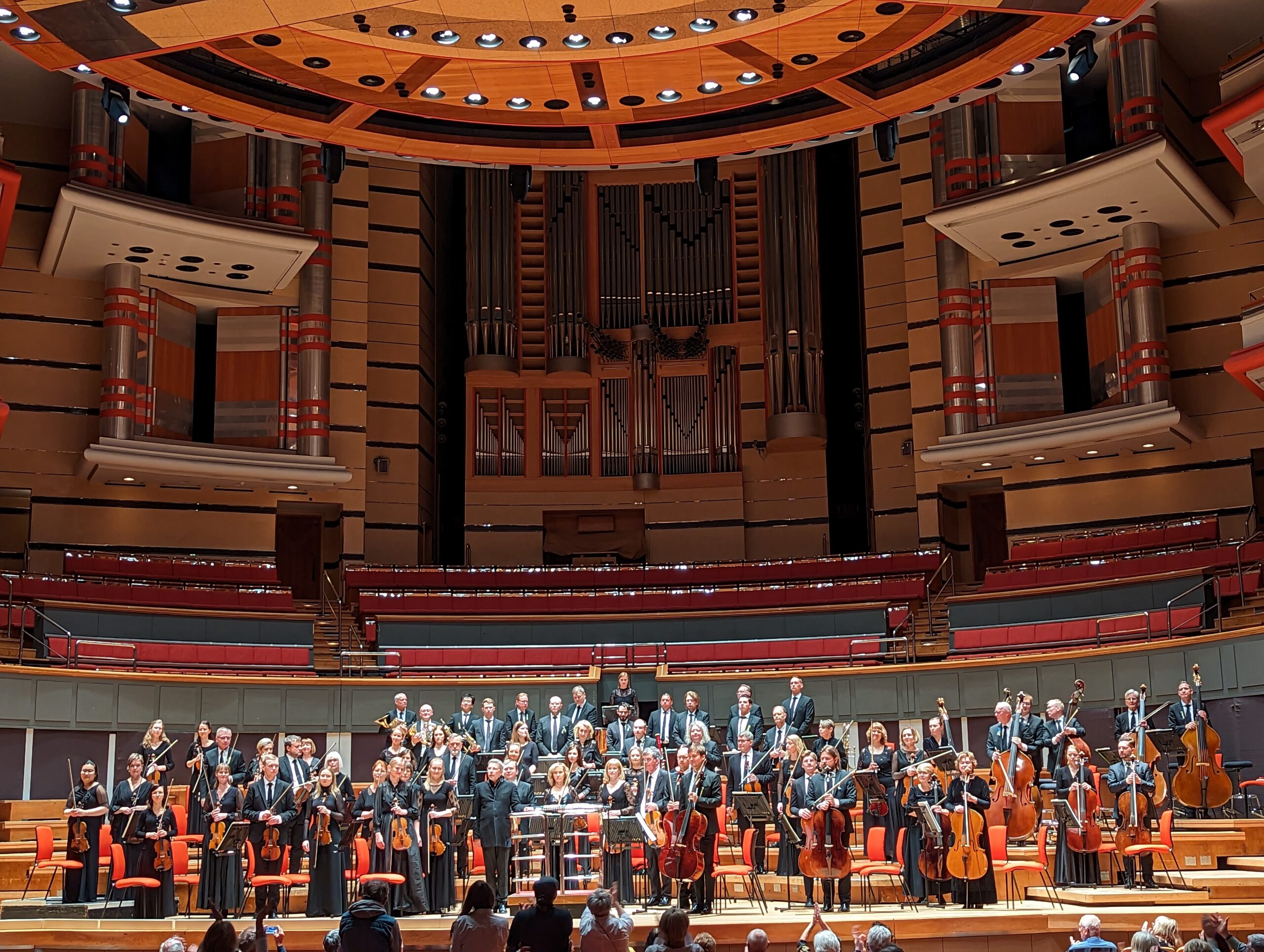Majestic Dvořák No.7 from Estonian Orchestra

Norman Stinchcombe, Midlands Classical Music Making
For most British classical enthusiasts the music of Estonia is synonymous with two names. The first is that of veteran Estonian conductor Neeme Järvi who in his 400-strong discography always championed the music of his homeland. That included a sublimely beautiful piece by Arvo Pärt – the second Estonian name familiar to us – his ‘Cantus in Memoriam Benjamin Britten’. This concert opened with a profoundly inward performance of that work performed by the Estonian National Symphony Orchestra of which Järvi was the chief conductor for a decade until 2020. The orchestra was making its first visit to Birmingham conducted by Järvi’s successor, his countryman Olari Elts. Starting and ending with the tolling of a bell, a religious call to attention, the orchestra’s strings soared gradually skywards before descending into a peaceful conclusion.
I remembered a rather rushed and perfunctory Schubert fifth from Elts’ with the CBSO but that was fifteen years ago and there was no sign of that young-man-in-a-hurry in this splendid performance of Dvořák’s Symphony No 7. The opening D minor Allegro was suitably majestic with the Estonian string players digging deep and the woodwind section illuminating Dvořák’s many lyrical Bohemian melodies. The Scherzo was outstanding with Elts emphasizing the changes of colour and pace – one moment the minor key clouds threatening a storm, the next flute and clarinet heralding bursts of sunshine in the G major trio. For Dvořák’s finale to be fully effective the D minor tension must be held until that last minute shift into a triumphant D major – like the sudden twist at the climax of a Hollywood thriller – and it certainly was here, deserving the enthusiastic applause it received.
It’s been nearly forty years since Barry Douglas wowed the Russians and carried off the Tchaikovsky Competition’s Gold Medal – tempus fugit. The young keyboard lion is now a grey-maned elder statesman but he can still roar with best of them as shown in a doughty performance of Rachmaninoff’s Piano Concerto No 3. Douglas’s strengths, a trenchant from-the-shoulder attack and a command of Rachmaninoff’s seamless switches from powerful declamation to inward poetry, were both in evidence. The long first movement cadenza is always a challenge to which Douglas rose, becoming a one-man orchestra for its duration. Elts and the Estonians gave powerful support – who can resist the composer’s trademark emphatic ending? Douglas’s encore of Prokofiev’s ‘Dance of the Knights’ from his ballet ‘Romeo and Juliet’ was very pleasing.

 EST
EST